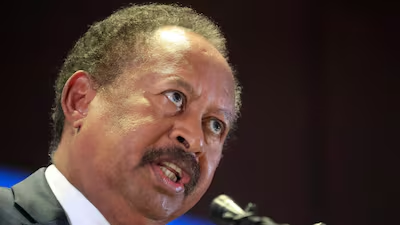
Sudanese Prime Minister Abdalla Hamdok speaks during a press conference in Khartoum. AFP
Sudanese Prime Minister Abdalla Hamdok speaks during a press conference in Khartoum. AFP
Sudanese Prime Minister Abdalla Hamdok reshuffles government
Hamdok appoints high-profile politicians and former rebels to Cabinet
